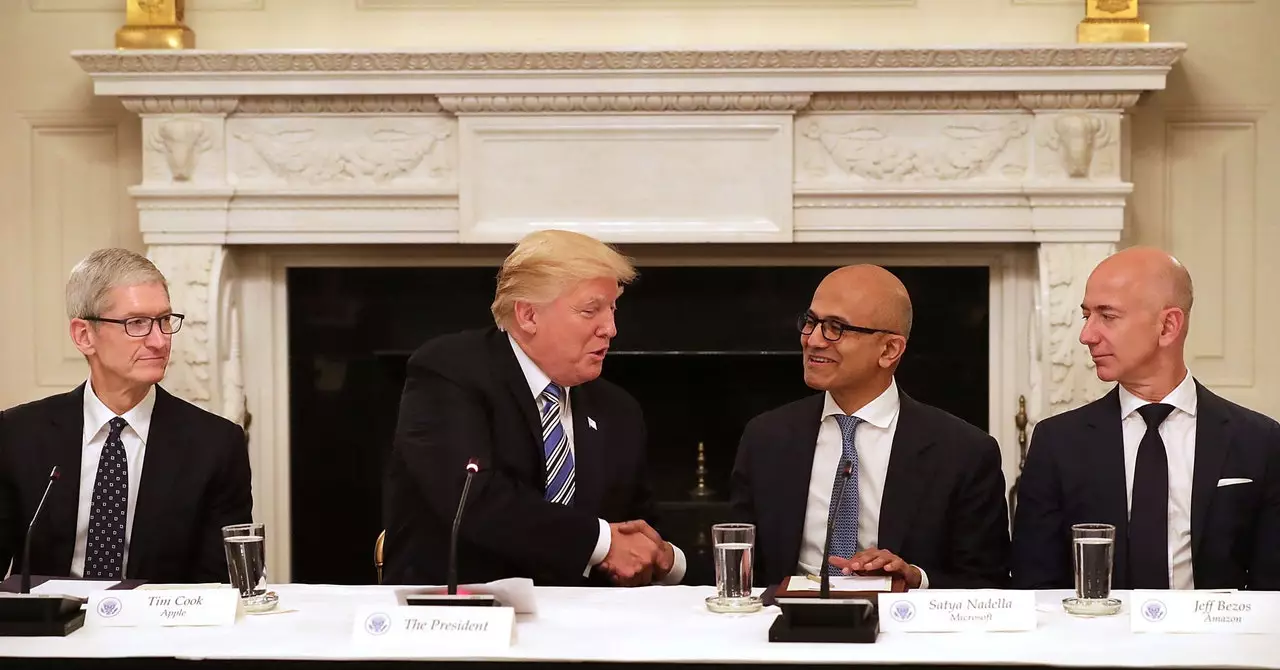The evolution of technology governance in the United States has entered a new chapter with the recent promises made by political figures, particularly Donald Trump. As he campaigns for a return to the White House, Trump’s declarations regarding major technology and financial regulatory agencies hint at a potentially transformative approach to governance that could reshape major industries.
One of the most enthusiastic responses during Trump’s campaign rallies has been his commitment to address the concerns of the cryptocurrency community. His pledge to dismiss Gary Gensler, the current head of the Securities and Exchange Commission (SEC), has resonated deeply among attendees. Under the Biden administration, Gensler’s SEC has pursued numerous legal actions against crypto firms, aiming to impose tighter regulations in an industry that has often operated in a gray area. By vowing to terminate Gensler’s leadership, Trump signals a possible shift toward a more lenient regulatory environment for cryptocurrencies, which many enthusiasts believe is necessary for fostering innovation and growth in this rapidly evolving sector.
Additionally, Trump’s promise to commute the sentence of Ross Ulbricht, the founder of the controversial Silk Road marketplace, has stirred significant discussion. Silk Road was instrumental in the early adoption of Bitcoin as a medium of exchange for illegal goods and services. Many supporters of cryptocurrency view Ulbricht’s life sentence as excessively harsh, advocating for his release as a matter of moral and legal fairness. This juxtaposition of regulatory promises highlights a broader, complex narrative. While Trump seemingly advocates for deregulation in some areas, he is also addressing serious ethical and legal issues surrounding digital economies.
The Future of Tech Regulatory Leadership
Another contentious area of discourse involves the leadership of the Federal Trade Commission (FTC) under Lina Khan, who has focused heavily on antitrust matters and the power dynamics within the tech sector. At just 35 years old, Khan has become a polarizing figure. Her tactics and policies have drawn both admiration and ire from various sides of the political spectrum. Figures like Reid Hoffman, co-founder of LinkedIn, and Elon Musk have signaled discontent, claiming that her aggressive approach hampers innovation in America.
Trump’s suggestion that Khan would be dismissed if he were to reclaim the presidency is indicative of his larger strategy. Analysts such as Dan Ives from Wedbush have expressed that her departure could lead to a resurgence of business mergers and acquisitions in Big Tech, which have stalled under her jurisdiction. The debate around Khan’s role underscores a critical tension; it embodies the struggle between enforcing fair competition and enabling growth in a sector characterized by rapid technological advancements.
While Trump’s administration is unlikely to completely undermine antitrust initiatives against tech giants, it appears poised to use these tools strategically. Adam Kovacevich from Chamber of Progress warns that Trump may repurpose ongoing antitrust litigation as leverage against big tech companies to negotiate favorable terms related to content moderation and free speech. This evolving strategy on its own raises pertinent questions about the balance that needs to be struck between market regulation and freedom of expression.
Notably, political figures like J.D. Vance have suggested radical solutions, including breaking up major corporations to combat perceived censorship and bias against conservative viewpoints. Such proposals reflect a growing sentiment among some political factions that entrenched tech companies pose threats not only to economic fairness but also to democratic processes.
As this political saga unfolds, the fate of digital and technological governance will depend heavily on the interplay between regulatory agencies and the incoming political leadership. If Trump secures another term, the implications for the tech industry could be profound, ushering in a period of deregulation that encourages innovation while simultaneously grappling with ethical concerns relating to privacy, censorship, and monopolistic practices.
Ultimately, the coming months will be critical in shaping a regulatory framework that balances economic innovation with ethical governance. The stakes are particularly high in an era where technology permeates every aspect of life, informing not just economics but also the broader socio-political landscape. Whether Trump will successfully navigate these challenges remains to be seen, but his current aims indicate a significant shift in the American tech governance discourse.

